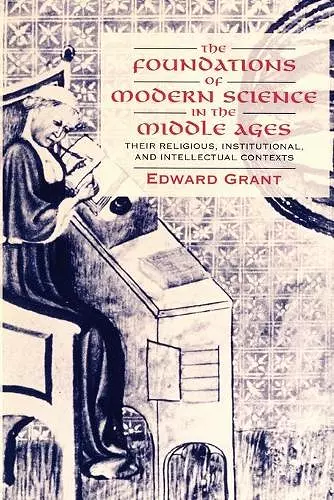The Foundations of Modern Science in the Middle Ages
Their Religious, Institutional and Intellectual Contexts
Format:Paperback
Publisher:Cambridge University Press
Published:28th Oct '96
Currently unavailable, and unfortunately no date known when it will be back

This 1997 book views the substantive achievements of the Middle Ages as they relate to early modern science.
The Scientific Revolution associated with the names of Galileo and Isaac Newton began in the seventeenth century, but the foundations for that revolution were laid in the late Middle Ages. This 1997 book views the substantive achievements of this period for early modern science within a broad societal and institutional setting that includes Latin translations, Christianity, and the universities.Contrary to prevailing opinion, the roots of modern science were planted in the ancient and medieval worlds long before the Scientific Revolution of the seventeenth century. Indeed, that revolution would have been inconceivable without the cumulative antecedent efforts of three great civilisations: Greek, Islamic, and Latin. With the scientific riches it derived by translation from Greco-Islamic sources in the twelfth and thirteenth centuries, the Christian Latin civilisation of Western Europe began the last leg of the intellectual journey that culminated in a scientific revolution that transformed the world. The factors that produced this unique achievement are found in the way Christianity developed in the West, and in the invention of the university in 1200. As this 1997 study shows, it is no mere coincidence that the origins of modern science and the modern university occurred simultaneously in Western Europe during the late Middle Ages.
ISBN: 9780521567626
Dimensions: 226mm x 152mm x 18mm
Weight: 430g
266 pages